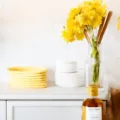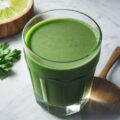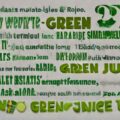When it comes to keeping your cutting boards clean and hygienic, the solution might just be in your fruit basket! Lemons, known for their fresh scent and tart flavor, also boast incredible cleaning properties. In this article, we’ll explore the surprising ways you can use lemons to clean and maintain your cutting boards, making sure they’re safe and ready for your next culinary creation.
Why Choose Lemons for Cleaning?
Lemons are not only a natural disinfectant, but they also have antibacterial properties that make them perfect for cleaning kitchen surfaces. The acid in lemons is capable of breaking down organic materials, making it effective against stains and lingering food particles.
How to Clean Your Cutting Board with Lemons
Cleaning your cutting board with lemons is simple and cost-effective. Begin by slicing a lemon in half and using it to scrub the surface of the board. The natural acidity will help to remove any residue and odors. For stubborn stains, sprinkle some coarse salt on the board before scrubbing with the lemon half.
Enhancing Lemon’s Cleaning Power
For an even deeper clean, create a paste using lemon juice and baking soda. Apply this to the board, let it sit for a few minutes, and then scrub away. This combination will tackle tough stains and also help to sanitize the surface.
Lemon as a Natural Bleach for Your Cutting Board
If your cutting board has developed a dull or discolored appearance, lemon can act as a natural bleach. After cleaning the board as usual, place it in direct sunlight with lemon juice spread over the surface. The sun’s UV rays will help to bleach the wood naturally, leaving it looking refreshed.
Caring for Your Cutting Board Post-Lemon Cleaning
Once you’ve cleaned your cutting board with lemon, it’s essential to rinse it thoroughly with water and dry it completely. To maintain the wood and keep it from drying out, finish by applying a light coat of food-grade mineral oil.
FAQs About Cleaning with Lemons
Can lemons disinfect as effectively as chemical cleaners?
While lemons have natural antibacterial properties, they may not kill all types of bacteria. For everyday cleaning, lemons are an excellent option, but for deep disinfection, especially during illness, you may want to use a stronger cleaner.
Will lemon juice damage my cutting board?
Lemon juice is generally safe for cutting boards, especially when used in moderation and followed by a thorough rinse. However, prolonged exposure to acid can damage wood over time.
How often should I clean my cutting board with lemon?
Using lemon to clean your cutting board can be done as often as after each use, especially if you’re cutting strong-smelling or staining foods like onions and beets.
Is it safe to use lemon on plastic cutting boards?
Absolutely! Lemon is safe for plastic cutting boards and can help remove odors and stains from the plastic surface as well.
Can I use bottled lemon juice instead of fresh lemons?
While fresh lemons are preferable for their natural oils and fresh scent, bottled lemon juice can be used in a pinch for its acidic properties.









